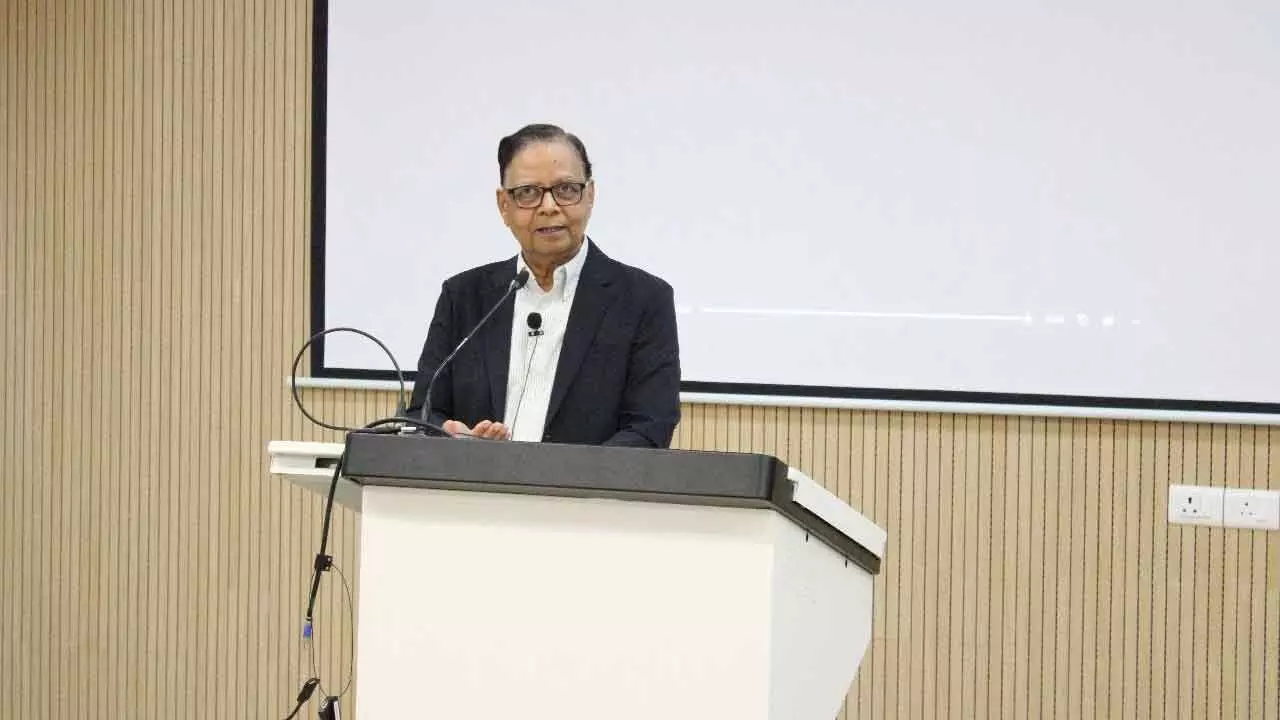Panagariya Sees $9-10 Trn Indian Economy In Next Decade
Delivers keynote address on ‘India in the Global Economy: The Next Decade’ at IIT Tirupati
Panagariya Sees $9-10 Trn Indian Economy In Next Decade

Tirupati: Chairman of 16th Finance Commission Prof Arvind Panagariya on Thursday offered a comprehensive analysis of India's economic standing and its path to becoming a developed nation (Viksit Bharat) by 2047, envisioning a $9–10 trillion economy in the next decade if growth pathways are pursued with commitment and consistency.
In his keynote address on "India in the Global Economy: The Next Decade" at IIT Tirupati, he explained that in order to transition from a middle-income economy to a high-income economy, India's gross national income (GNI) per capita would have to increase by nearly 8 times from the current $2,540 in 2023 (currently India is in the lower-middle-income category). Also, a sustained average annual growth rate of 7.8 per cent over the next 24 years would be required to achieve this goal.
Prof Panagariya , the first Vice Chairman of NITI Aayog, elaborated on the feasibility of this goal by citing India’s growth trends in the last two decades, where India’s GDP not only grew at 8-9 per cent but also overcame several setbacks like the Global Financial Crisis, the Covid-19 pandemic, and domestic financial challenges. He emphasised that in this period, India has demonstrated resilience and growth potential.
Prof Panagariya outlined the three key factors supporting India’s future growth: Transition from low per capita income to high per capita income, significant scope exists for catching the growth, similar to China's and Korea’s past trajectories and innovation, supported by skill acquisition and technology adoption, is essential for increasing per capita income.
On demographic dividend, he observed that India benefits from a large, young working-age population, translating into higher savings, scalable service delivery, and increased productivity. He said though reforms progress more slowly in a democratic setup, India has made steady headway in key areas such as infrastructure development. Landmark projects like the Atal Setu and the New Parliament building illustrate India’s growing capacity to execute large-scale projects. There is now a pressing need to scale up private enterprises and improve employment in high-productivity sectors, especially in manufacturing.
He addressed concerns about underemployment and the need to shift workers from low-productivity micro-enterprises to more productive firms. Stressing the importance of labour and land reforms, Prof. Panagariya called for policies that enable enterprise growth and better workforce absorption by the private sector.
In response to an engaging Q&A session, Prof Panagariya acknowledged the lag in manufacturing growth, citing restrictive labour laws as a key bottleneck. He emphasized the need for medium-sized enterprises to scale up and highlighted industry-led skilling as crucial for enhancing workforce productivity.
On climate change, he reiterated that India alone cannot solve the global crisis. However, it can adopt dual domestic objectives—tackling pollution in cities and securing energy through non-fossil fuel sources—to ensure sustainable development while adapting to climate realities.
Prof Manoj Panda, Member, 16th Finance Commission of India and former Director, Institute of Economic Growth and Prof KN Satyanarayana, Director, IIT Tirupati spoke. The lecture was organised by the Department of Humanities and Social Sciences,IIT-Tirupati.
In his welcome address, Prof Satyanarayana shared the transformative journey of IIT Tirupati, emphasising that being a third-generation IIT, it is built with a focus on cutting-edge research and innovation.

